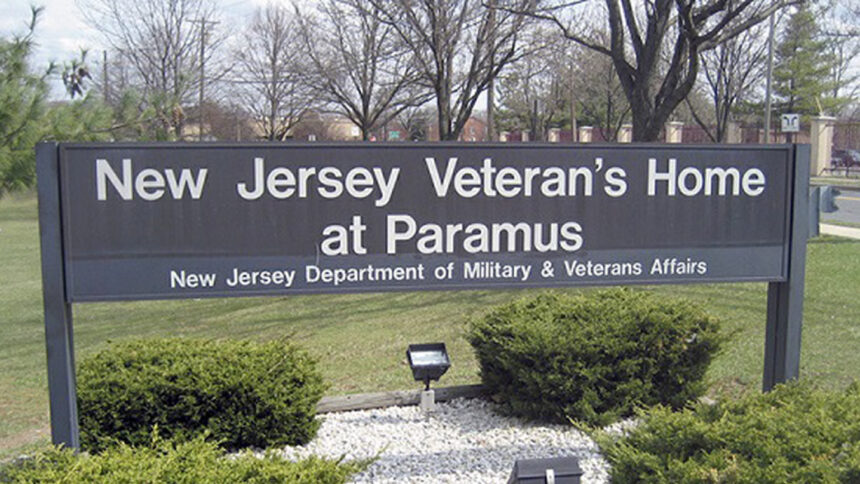
Two veterans’ nursing homes in New Jersey that employees described as “pure hell” and “a battlefield” violated residents’ Constitutional rights, federal officials said in a damning report.
The Department of Justice Civil Rights Division and the US Attorney’s Office District of New Jersey issued a joint report Thursday with findings of their investigation into the Veterans Memorial Homes at Menlo Park and Paramus. The 40-page report details “those early days [of COVID] and how the initial chaos decreased but did not end,” eventually leading to a conclusion that the facilities violated residents’ 14thAmendment rights.
“Even by the standards of the pandemic’s difficult early days, the facilities were unprepared to keep their residents safe,” the agencies concluded. “A systemic inability to implement clinical care policy, poor communication between management and staff and a failure to ensure basic staff competency let the virus spread virtually unchecked throughout the facilities.”
While the investigation and report primarily focus on widespread failures to keep residents and staff safe during the pandemic and the facilities’ failures to report correctly the number of COVID cases and deaths, the agencies also described dangers to residents through inadequate wound and pressure ulcer care, and failures of basic care, including fall prevention protocols.
Officials’ findings read like a “how not to” manual for skilled nursing operators.
The report describes a pervasive lack of communication between the facilities’ leadership and staffs, which led to an environment in which neither trusted the other.
A non-clinical staff member at the Menlo Park facility told investigators of a situation in which a resident with a high fever was “screaming and ripping out his oxygen tube.”
“When she reported the incident to another nurse on the unit, the nurse responded that she should mind her own business because the nurse was finishing her shift,” the report said.
In another incident at Menlo Park, investigators from the Centers for Medicare & Medicaid Services “observed a serious failure to ensure nursing competency.” The investigators learned that a registered nurse who had never removed a catheter improperly used scissors to cut the device, “causing the remaining catheter to retract into the bladder and sending the resident to the hospital.” The nursing staff also failed to read the hospital’s directions and did not administer the prescribed antibiotics for 15 days, resulting in the resident undergoing extended antibiotic treatment for additional infections, including MRSA.
Infection control, cleaning severely lacking
The Department of Justice notified the New Jersey Department of Justice on Oct. 27, 2020, that it would be opening an investigation into the two facilities under the Civil Rights of Institutionalized Persons Act. Infection control and long-term care medical experts assisted with the investigation.
What they found were environments that continually exposed residents and staff to significant harm. The report noted that the homes had the first- and fourth-highest numbers of publicly-reported COVID deaths, but “the actual number of COVID deaths was likely much higher.”
“Due to limited testing and a failure to systemically track probable COVID deaths, it is impossible to determine the exact number of Veterans Homes residents who died of COVID during the pandemic’s first wave in 2020,” the investigators said. “But it is clear that the number of deaths during COVID’s early months was substantially higher than the numbers publicly disclosed, and substantially higher than at other facilities.”
Although the New Jersey Department of Health ordered universal masking for all nursing home staff on March 30, 2020, neither facility “successfully implemented that policy,” the report noted. US Veterans Affairs employees saw staff members at both homes either not wearing or wearing masks incorrectly, not changing PPE when moving between resident rooms, entering COVID-positive rooms without gowns, and delivering food without wearing masks and gloves.
Days after a directive went out about hand washing, there remained “broad deficiencies in handwashing” at both facilities, according to the report. Housekeeping staff at Paramus were also not properly trained on how to disinfect resident areas, including the “terminal cleaning” of rooms from which COVID-positive residents were discharged or transferred.
“In Menlo Park, the nursing stations were dirty and there was no cleaning of common areas; one U.S. Veterans Affairs staffer reported ‘ants/bugs everywhere,’” the report noted.
Fear of retribution
The report also outlines staff members’ “inadequate” cooperation from both state and facility officials with the federal investigation along with “widespread dissatisfaction and low morale among the staff.” Employees said that complaints about resident care, poor communication between leadership, supervisors and employees, and “inadequate mental health support” were ignored.
Staff attorneys and facility management tracked the movements of federal investigators as they moved through the homes, the report said. They interrupted witness interviews, asked witnesses afterward what was discussed, and directed staffers not to speak with investigators. Following the first site visit to Paramus, the CEO and at least one supervisor told department heads and staff that, “DOJ can shut us down, staff should be mindful of what they say.” Staffers reported being fearful of retaliatory actions if they spoke with investigators, the report noted.
The report also stated the federal subpoenas were “delayed, incomplete, contained numerous wholly non-responsive documents, and regularly consisted of thousands of documents with little to no organization and in no discernible order.”
“Resident medical records were particularly disorganized, with documents regularly out of order. Some charts contained records related to other residents. These production problems caused substantial delays and impeded the Department’s ability to effectively and expeditiously investigate potential CRIPA violations,” the report said.
The Attorney General for New Jersey has 49 days after issuing the report to file a lawsuit under the Civil Rights Act if the problems raised in the report are not “satisfactorily addressed,” the report said.




